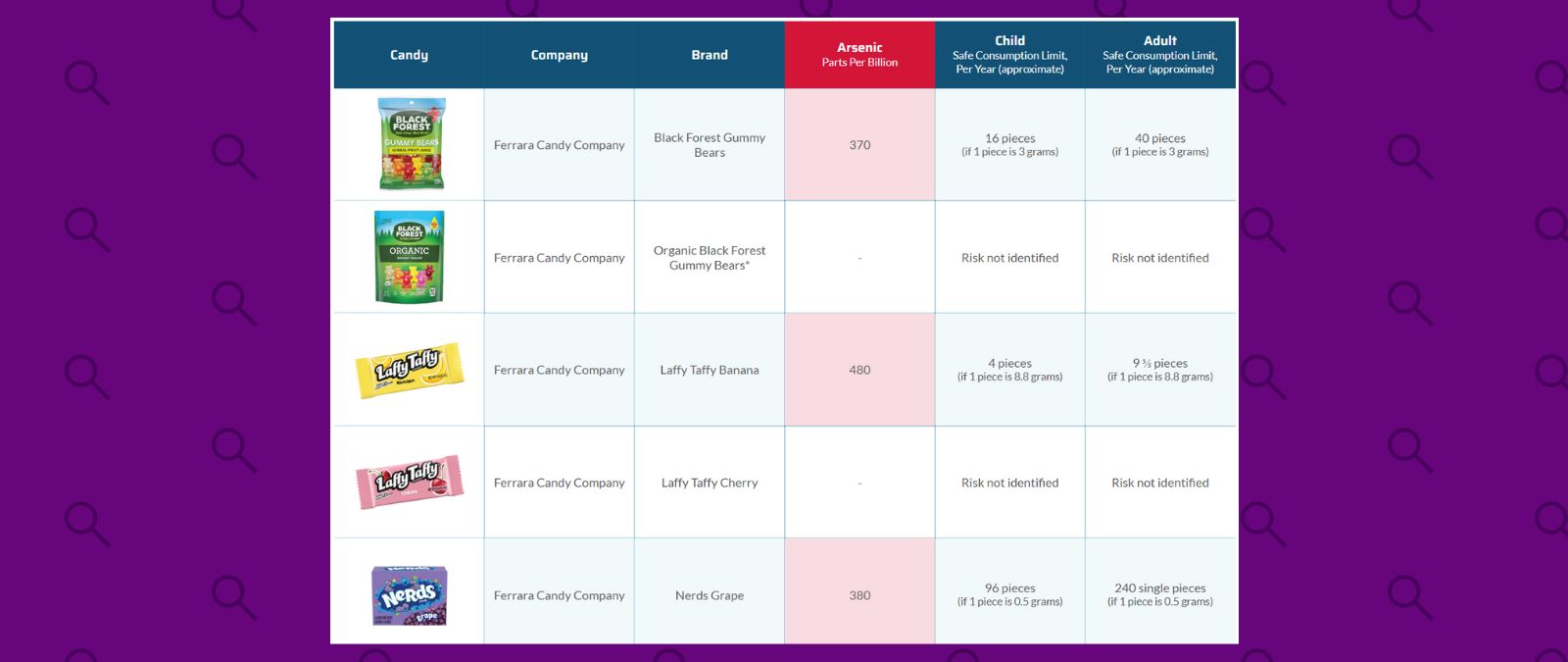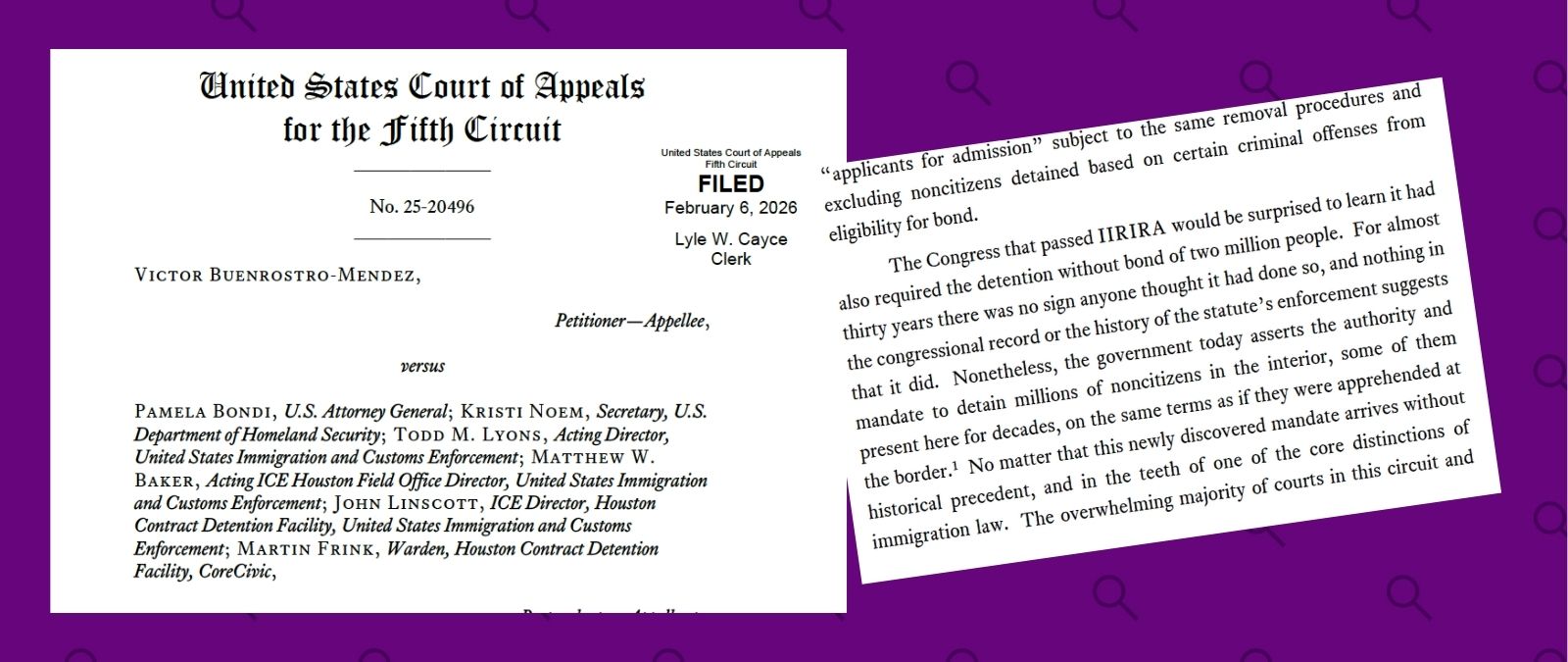President Donald Trump, when invoking the 1798 Alien Enemies Act against Tren de Aragua (a gang formed in a Venezuelan prison), claimed the gang:
Is waging an “irregular warfare” within the U.S. under the direction of Nicolás Maduro’s regime.
Is engaging in “mass illegal migration” into the U.S. “to further its objectives of harming United States citizens”, "undermining public safety”, and “destabilizing” the country.
In addition, court documents reviewed by Factchequeado show that immigration authorities have a list of tattoos they claim “denote membership” to Tren de Aragua.
However, experts who have studied the Tren de Aragua—also referred to as TdA by U.S. authorities—agree there is no evidence or investigation establishing that:
This criminal group has a defined structure in the U.S., or that its members use tattoos for identification.
Nor is there evidence that Maduro’s regime has ordered members of the gang to enter or carry out actions in the United States.
To report this story, Factchequeado reviewed two expert affidavits submitted in the legal case evaluating the legality of detentions and expulsions to El Salvador of people accused (without trial) of belonging to Tren de Aragua after Trump invoked the Alien Enemies Act on March 14, 2025:
An affidavit by Rebecca Hanson, professor of sociology and criminology at the University of Florida and author of Policing the Revolution: The Transformation of Coercive Power and Venezuela’s Security Landscape During Chavismo.
An affidavit by Andrés Antillano, professor of criminology at the Central University of Venezuela, expert on gangs and organized crime.
Factchequeado also interviewed:
Ronna Rísquez, journalist specializing in crime and author of Tren de Aragua: The Gang That Revolutionized Organized Crime in Latin America.
Mike LaSusa, journalist focused on national security and crime at InsightCrime, a think tank on organized crime and corruption in Latin America and the Caribbean.
Experts say Tren de Aragua has no structured presence in the U.S.
The experts agree that while individuals in the U.S. have been linked to Tren de Aragua, there is no evidence that its members are coordinated in the country, as Trump claims. “The profile of suspected TdA crimes in the United States do not indicate a systemic criminal enterprise,” says Hanson, adding that most arrests have been for shoplifting or phone theft.
Here’s what the consulted experts said:
Ronna Rísquez: “There isn’t enough clear, precise, and comprehensive information to affirm that the gang operates in the United States.” Based on government statements and media reports, some individuals may be linked to Tren de Aragua, “but when you dig deeper, you don’t find enough to determine if they are indeed members of the gang, or just Venezuelans who committed crimes in the U.S.” Unlike in Venezuela, Chile, or Colombia, there’s no sign of an organized structure or leadership in the U.S., she adds.
Rebecca Hanson: “There is no credible evidence that TdA has a foothold as a criminal organization within the United States. TdA activities are neither widespread nor coordinated within the United States.”
Andrés Antillano: “Tren de Aragua is not a highly structured or centralized organization with a defined membership or command chain,” and “there is no evidence that the group has a significant presence in the U.S.”
Mike LaSusa: “There’s no evidence that gang members are coordinated with each other.”
Experts say there is no evidence Tren de Aragua members use tattoos for identification
Although court documents show immigration authorities use a tattoo list to identify alleged members, experts say no credible study shows that Tren de Aragua members use tattoos or specific symbols for identification, unlike gangs such as MS-13. “There is no graphic symbol identifying Tren de Aragua or its members,” Antillano says.
Rebecca Hanson: “Tattoos are not a reliable way to identify members of the group. The TdA, and gangs more generally in Venezuela, do not have a history of using tattoos to indicate membership. Indeed, no credible scholarship or studies of gangs in Venezuela indicate tattooing as a shared common practice among gang members. Many young Venezuelans who have no association with the TdA individually opt for personal tattoos based on personally meaningful symbols or popular culture iconography. The government’s reliance on tattoos appears to result from an incorrect conflation of gang practices in Central America and Venezuela.”
Andrés Antillano: “Tren de Aragua has never had defined membership, initiation rituals, or tattoos as identifying marks, unlike Central American maras or certain ethnic gangs in the U.S.”
Mike LaSusa: “Our research and that of other experts shows the group doesn’t use tattoos, specific clothing, or symbols for identification.”
Ronna Rísquez: “Neither in Venezuela nor elsewhere have tattoos been shown to be an identifying element of Tren de Aragua members. That hasn’t come up in my reporting.”
Experts say there is no evidence Maduro ordered members of Tren de Aragua to enter the U.S.
The consulted experts agree: there is no evidence to support the claim that Tren de Aragua members entered the U.S. under orders from Nicolás Maduro’s regime.
Rebecca Hanson: “There is no credible evidence that the migration of young Venezuelan men, with or without criminal records, to the United States has been directed by the Maduro government. Instead, research has found that this migration is the result of the horrific economic and humanitarian crisis that began in 2014 and left many families in the country without access to food, healthcare, water, and electricity”.
Ronna Rísquez: “There is no evidence that the Venezuelan government issued an order to the gang to go to the U.S. to destabilize.”
Mike LaSusa: “The Trump administration has not identified any leadership structure for the gang. If you’re planning an invasion, you don’t just tell everyone to go on their own—you coordinate it. There’s no identified leadership enabling that.”
Factchequeado also did not find any document, investigation, or public statement supporting the claim that the Maduro regime had ordered members of this gang to go to the United States. However, we did find statements in official media of the Venezuelan dictatorship, made by regime spokespersons, claiming that Tren de Aragua had been “deactivated” (July 2024), “dismantled” (November 2024), “dismantled throughout the national territory,” and “extinct” (February 2025).
Experts say Maduro’s regime does not coordinate the gang’s activity in the U.S.
Similarly, experts agree there is no evidence that Tren de Aragua members in the U.S. are acting under orders from Maduro. Hanson says the relationship between the gang and the Venezuelan government is mostly antagonistic, though there have been moments of mutual benefit.
Ronna Rísquez: “There is no evidence that Tren de Aragua members in the U.S. follow a direct chain of command from political leaders in Venezuela.”
Rebecca Hanson: “It is absolutely implausible that the Maduro regime controls TdA or that the Maduro government and TdA are intertwined. The relationship between the Maduro government and TdA is largely antagonistic. The relationship is best characterized as conflictive and competitive, with brief moments of coordination when the government and TDA benefit economically and politically from this coordination.”
Andrés Antillano: “The group is decentralized and uncoordinated. There is no stable connection with the Venezuelan state, nor any direction from the Maduro regime to act in the U.S.”
Mike LaSusa: “Our research suggests the relationship has deteriorated significantly, especially after the 2023 Tocorón prison raid, which had been the gang’s stronghold. Since then, Venezuela has cooperated with other countries to arrest some gang leaders.”
Ronna Rísquez does not believe that the relationship between the criminal gang and the Maduro regime has necessarily deteriorated, because Venezuelan authorities have not captured “Niño Guerrero” (the gang’s leader) or the other top leaders—neither during nor after the raid on Tocorón prison. Furthermore, Rísquez adds, the criminal organization continues to control the most important gold mine in Venezuela, the Orinoco Mining Arc, located in the south of the country.
What about the Ronald Ojeda case?
According to the Chilean government, a criminal gang linked to Tren de Aragua was involved in the kidnapping and murder of former Venezuelan military officer Ronald Ojeda, which took place on February 21, 2024, in Santiago. According to Chile’s public prosecutor’s office, a witness stated that the order to kill Ojeda came from “authorities of the Venezuelan government,” specifically from Diosdado Cabello, current Minister of Interior, Justice and Peace in Venezuela, and one of the most powerful figures within the regime.
Ojeda, who had political asylum in Chile, had been declared a “traitor to the homeland” one month prior to his murder, on January 24, 2024, by Venezuela’s Ministry of Defense, and was accused of being part of “conspiracies involving the planning of criminal and terrorist actions to undermine the system of government” in Venezuela.
According to Chilean prosecutors, the 21 individuals charged in connection with Ojeda’s murder are “basically linked to Tren de Aragua, to its operational arm in Chile, known as Los Piratas de Aragua.”
At least two suspects involved in Ojeda’s kidnapping and murder are detained in the United States, and the Chilean government indicated it would request their extradition. On March 24, 2025, the U.S. Department of Justice (DOJ) announced it would extradite three alleged members of Tren de Aragua under the Alien Enemies Act, including Adrián Rafael Gámez Finol, alias “El Turco,” a dual citizen of Colombia and Venezuela. “El Turco” has been identified as the alleged leader of Los Piratas de Aragua and as the “mastermind” of Ojeda’s murder.
According to the DOJ, “El Turco” had been deported from the United States to Venezuela in August 2023 and allegedly re-entered the country illegally. He was then criminally charged in the Southern District of Texas on February 18, 2025. Gámez Finol is currently held in a Texas prison, serving a sentence for human smuggling, the DOJ added.
Rísquez sees the Chile case as another possible example suggesting that the relationship between the gang’s leadership and the Venezuelan regime has not deteriorated. However, she has not found evidence of any coordination between Venezuelan authorities and individuals in the United States who might be members of Tren de Aragua.
Factchequeado is a fact-checking newsroom building a Spanish-speaking community to counter misinformation in the United States. Want to be part of it? Send the content you receive to our WhatsApp +1 (646) 873-6087 or visit factchequeado.com/whatsapp.









